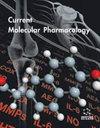IMPDH2 Positively Impacts the Proliferation Potential of Hepatoblastoma Cells by Activating JunB Signaling Pathway
IF 2.9
4区 生物学
Q3 BIOCHEMISTRY & MOLECULAR BIOLOGY
引用次数: 0
Abstract
Background: Amplification of inosine monophosphate dehydrogenase II, EC 1,1,1,205 (IMPDH2) has been reported in various cancers, which results in transformation and tumorigenicity. In our current work, we have explored the oncogenic properties and the underlying pathophysiology of IMPDH2 in hepatoblastoma (HB). Methods: To investigate IMPDH2 expression in HB tissues and prognostic significance in HB patients, gene expression profiling interactive analysis (GEPIA) has been adopted. Immunohistochemistry has also helped to validate the protein expression of IMPDH2 in HB tissues. The effect of IMPDH2 overexpression or depletion on the proliferation of Hepatoblastoma cells in vitro has been evaluated by CCK8 assays and colony formation assays. Xenograft tumor growth of mice has been detected. Luciferase reporter assays have been conducted to determine the interaction of IMPDH2 and JunB, which was further asserted by pharmacological inhibition of JunB. Results: IMPDH2 was highly expressed in HB tissues. Experimentally, the proliferation and colony formation of HuH6 cells were increased by IMPDH2 overexpression. Conversely, genetic inactivation of IMPDH2 impaired the proliferative efficiency and colony-forming rate of HepG2 cells. Besides, the luciferase reporter assay validated IMPDH2 overexpression to be associated with enhanced JunB transcriptional activity, while its activity was diminished in the case of IMPDH2 depletion. JunB inhibitor neutralized the IMPDH2-mediated increased phosphorylation of JunB. Conclusion: Our findings, thus, suggest that IMPDH2 exhibits its oncogenic role in HB partially via JunB-dependent proliferation.IMPDH2 通过激活 JunB 信号通路积极影响肝母细胞瘤细胞的增殖潜力
背景:有报道称,单磷酸肌苷脱氢酶 II EC 1,1,1,205 (IMPDH2)在多种癌症中发生扩增,从而导致肿瘤的转化和致癌。在目前的工作中,我们探讨了 IMPDH2 在肝母细胞瘤(HB)中的致癌特性及其潜在的病理生理学。研究方法为了研究 IMPDH2 在 HB 组织中的表达以及在 HB 患者中的预后意义,我们采用了基因表达谱交互分析(GEPIA)。免疫组化也有助于验证 IMPDH2 在 HB 组织中的蛋白表达。通过 CCK8 试验和集落形成试验评估了 IMPDH2 过表达或缺失对体外肝母细胞瘤细胞增殖的影响。还检测了小鼠异种移植肿瘤的生长情况。通过荧光素酶报告实验确定了 IMPDH2 和 JunB 的相互作用,并通过药物抑制 JunB 进一步证实了这一点。结果IMPDH2 在 HB 组织中高表达。实验表明,过表达 IMPDH2 可增加 HuH6 细胞的增殖和集落形成。相反,基因失活 IMPDH2 会降低 HepG2 细胞的增殖效率和集落形成率。此外,荧光素酶报告实验证实,IMPDH2过表达与JunB转录活性增强有关,而在IMPDH2缺失的情况下,其活性则会减弱。JunB 抑制剂中和了 IMPDH2 介导的 JunB 磷酸化增加。结论因此,我们的研究结果表明,IMPDH2 在 HB 中的致癌作用部分是通过 JunB 依赖性增殖实现的。
本文章由计算机程序翻译,如有差异,请以英文原文为准。
求助全文
约1分钟内获得全文
求助全文
来源期刊

Current molecular pharmacology
Pharmacology, Toxicology and Pharmaceutics-Drug Discovery
CiteScore
4.90
自引率
3.70%
发文量
112
期刊介绍:
Current Molecular Pharmacology aims to publish the latest developments in cellular and molecular pharmacology with a major emphasis on the mechanism of action of novel drugs under development, innovative pharmacological technologies, cell signaling, transduction pathway analysis, genomics, proteomics, and metabonomics applications to drug action. An additional focus will be the way in which normal biological function is illuminated by knowledge of the action of drugs at the cellular and molecular level. The journal publishes full-length/mini reviews, original research articles and thematic issues on molecular pharmacology.
Current Molecular Pharmacology is an essential journal for every scientist who is involved in drug design and discovery, target identification, target validation, preclinical and clinical development of drugs therapeutically useful in human disease.
 求助内容:
求助内容: 应助结果提醒方式:
应助结果提醒方式:


